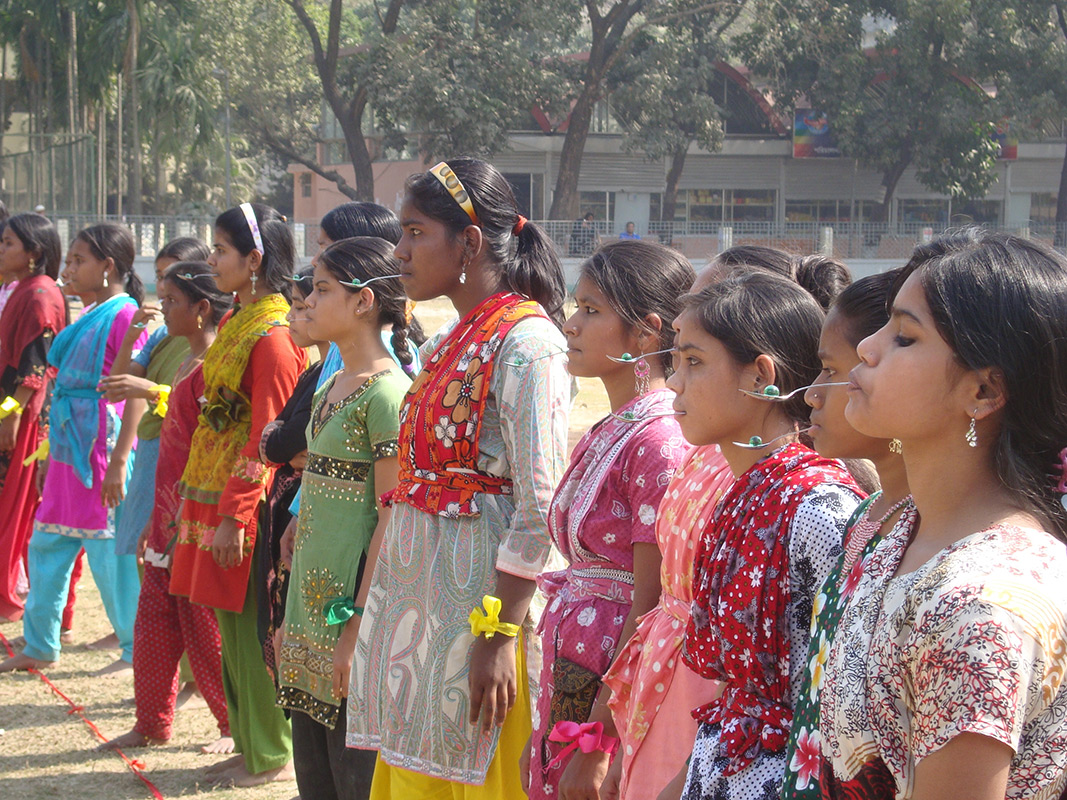Support for Safer Childhood of Girl Domestic Workers

| Project Duration | 3 years (April‟2012 – March‟2015). |
| Funding organization | SHAPLA NEER – Citizens Committee in Japan for Overseas Support. |
| Project Goal | Girl Domestic Worker will be reduced in project area. |
| Project Purpose | Girl Domestic Workers (GDWs) are enjoying their child rights. |
| Project Output | 1. GDWs are confident in their life. 2. GDWs are living comfortable life in employer‟s house. 3. Slum guardians do not push girls to work as a domestic worker. 4. Community people are working for domestic workers. |
| Project working areas | The project is covering four areas in Dhaka city through four education and training centers for the GDWs that are situated in – 1. Korail slum under Gulshan police station 2. Paikpara Govt. Colony under Mirpur police station 3. Rupnagar private residential area under Mirpur police station 4. Azimpur Govt. colony under Lalbag police station. |
| Beneficiary/Stakeholder | Total 1000 (8 -18 years GDW-320, Employer-220, Guardians-80,Community People- 380) |
| Short description | Addressing the girl domestic worker‟s current situation, problems and needs, Phulki started „Community Based Project for Girl Domestic Workers’ in 2006, is now running as‘Support for Safer Childhood of Girl Domestic Workers’.Different services are provided to GDWs like informal education, awareness on manners; personal hygiene; sex education, skill training on household works; cooking; early childhood development; hand stitch; handicraft; machine sewing, referral services for mainstream schooling & health care, recreational activities and exhibition to promote their hand made products. Modules and materials have developed on Informal Education, Personal & Household Hygiene, and Basic Information on Sex Education, Hand Stitches and Household Works, considering their age and receiving capability. Around1400 GDWs have received services from Phulki‟s education and training centers for them. After successfully completion of 18 months package of education and training a GDW appear in the graduation examination and get certificate that she can use during main stream school admission, salary bargaining, alternative income source exploring or for future wellbeing. Continuous motivation has given to their employers & guardians and also community peoples on child rights convention (CRC) issues to prevent harassment and for taking responsibility of GDW‟s wellbeing. |
| Major Achievements | 1) Total 338 GDWs of targeted 320 GDWs have received services from 4 centres. 76% of enrolled GDWs can make word and sentences in Bangla and in English, can do easy mathematics. 68% can read easy story books. 50% can write address in Bengali. 2) Total 105 GDWs had participated in graduation examination and 100 of them were passed in the graduation examination successfully. 3) 70 GDWs have admitted and continuing education in main stream school. 4) Salary has increased of 70 GDWs. 5) 48 of enrolled GDWs have changed their job (garments, Aya and cleaner job, beauty parlor, peer educator in NGO, small business). Additionally 4 GDWs are doing private tuition to other children and 37 GDW‟s are making hand made products for business purpose. 6) Approximately 76% (99 GDWs) of present 127 GDWs are skilled on household works, practice hygiene. 7) From follow up visit and monitoring visit it is found that more than 60% of present employers are commenting positively about their GDWs and harassment is reducing day by day. 8) Around 330 employers and guardians are showing responsibility like giving opportunity for education, voluntarily facilitating cooking training, giving admission fees and sewing training fees. 9) About 450 community peoples contributed money and materials for arranging cooking training, Ifter party and other purpose for GDWs. 10) 4 Community group has formed and other two are under process. 11) Community group members are helping to generate community people‟s responsibility towards GDWs. 12) 18 child leaders (graduated GDWs) are working for GDWs. |
